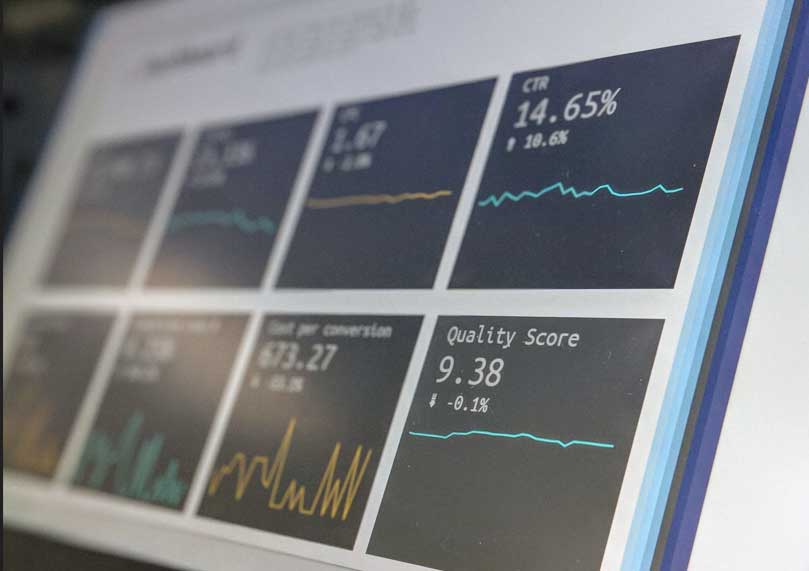Why is Automation the Least Favourite Part of SEM?
Singapore is a leading business hub, with cutting-edge technologies and disruptive innovations dominating its entrepreneurial landscape. Digital transformation has altered business practices in the island state by introducing advancements like automation. Businesses have increased their focus on digital marketing in Singapore and introduced new mechanisms for catering to their online audience. 90% of Singaporeans own smartphones and about 10% learn about new products due to online ads. These trends suggest an overwhelming need to curate industry-leading marketing strategies that can meet the needs of this online audience. As a result of this growing pressure on digital marketers, many businesses fall back on automation to simplify their campaigns. But is automation the best answer for all the woes of a digital marketer? Not always! Let’s assess why automation is often the least favourite part of SEM.
Automation in SEM: Decoding the Basics
Search engine marketing (SEM) involves the use of digital marketing tactics to improve brand visibility, lead generation, and sales via search engine platforms. Search engines like Google are the go-to tools for prospective customers as they search for various products. SEM includes paid ads and other optimisation tools for improving your chances of meeting business goals on the SERPs. Search engine results pages (SERPs) display relevant results and ads to people when they search for a product or service. Businesses strive to gain better visibility on these pages in their bid to get more customers.
Now, let’s analyse what automation looks like in the context of SEM today. Google, the top search engine in Singapore (95.69% market share), has introduced automation in many levels of paid ad generation. Google applies machine learning to manage bids, create ads, match keywords, and more.
Here are some examples of automation in the SEM process:
- Dynamic Search Ads (DSAs): DSAs are automated ads that pick up content from a business website to generate relevant ads for customers.
- Responsive Search Ads (RSAs): RSAs combine different variations of headlines and descriptions to run top-performing ad elements.
- Dynamic Keyword Insertion (DKI): DKI inserts new keywords into your ad if they are present in a potential customer’s search query.
- Automated Bidding: This feature lets Google dynamically change your ad bids by identifying keywords with greater chances of conversions or clicks.
If you are new to the world of digital marketing, you might be thinking that such automation is a dream come true. While these features can help many businesses simplify their SEM process, they also come with a catch. Automation has some pitfalls that can cause troubles in your marketing paradise. Let’s understand why automation is not a digital marketer’s dream feature!
Challenges of Automation in SEM
Today’s digital marketers have many complaints about automation in SEM. Here are their top concerns:
- Lack of Nuance: A business enterprise is a lot like a human being. Every one of them is different from the other, needing nuanced approaches for optimising growth. While machine learning algorithms are advanced, they often adopt a cookie-cutter approach. Their broad strokes and generic decisions can have a negative impact on your firm and its business model. Automation seeks to achieve quicker customisation. However, the quest for time-saving can lead to oversimplification. If you work with an SEM agency in Singapore, their team of experts can generate tailormade insights that an automated service can never match.
- Loss of Control: An overdose of automation can rob you of control over your marketing campaign. Search engines like Google and social media platforms like Facebook often push users to adopt automated options. While novice digital marketers may find that exciting, experienced ones know how it can turn into a trap. Overdependence on automation can provide broader insights, making it harder to assess micro-level KPIs.
- Unsuitability for Many Business Models: Many search marketers complain that the force-fed model of search ad automation is unsuitable for their clients. The dynamic and responsive ad generation models can be helpful for high-volume e-commerce accounts. These online stores often target broad audiences and want impression volumes to build brand awareness. However, this approach may not work for every business. For example, if you cater to a niche audience with low conversion rates, you will need a different strategy. In that case, an SEM service in Singapore can help you deliver thought leadership and build customer relations to fuel your growth plans.
- Lack of Selective Targeting: The current automated solutions do not offer adequate flexibility to businesses and search marketers. For example, it is not possible to use automated bidding while turning off specific targeting components. This inflexibility prevents marketers from effectively tracking insights for data-driven decisions.
- Inadequate Reports: Google dashboards often provide reports with overarching data without highlighting the micro-level KPIs. This limitation stops marketers from identifying low-performing elements and creating better advertising copies.
- Pushy Representatives: Many search marketers complain that the search engine representatives pressurise them to adopt automation. This pressure, added to the rising prices, compounds the frustrations of users in the world of SEM. The pressure from search engine representatives can often confuse business users who do not know better. They fail to get the right advice and fall into the trap of automation.
Considering these issues, can we say that automation is bad for SEM? Not necessarily. However, the use of automation will be successful only when it finds a complement in human considerations. Professional experts from successful SEM agencies can help businesses craft tailormade strategies for growth and sales. If you want suitable guidance for your SEM needs, reach out to the Fenzo Digital team today! They can help you navigate the thorny path of automation and succeed in style.







